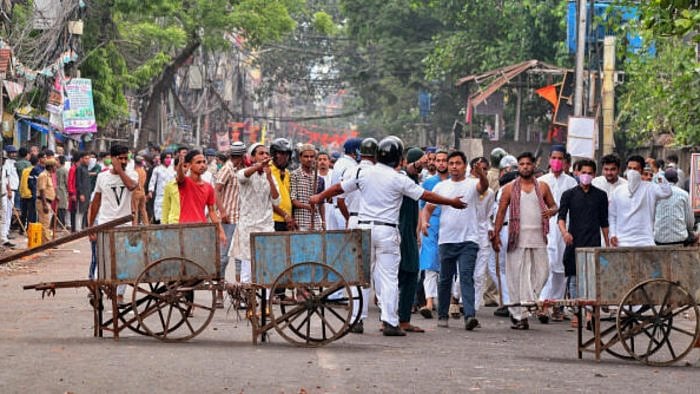
This year’s Ramnavami again witnessed clashes between Hindu processionists and Muslims in various parts of the country. There were untoward incidents even in places where there were no processions. It has become a normal affair for violence to break out on days of religious importance. It was a particularly challenging situation this year because Ramnavami occurred in the holy month of Ramzan. There were many incidents of violence in West Bengal, Maharashtra, Gujarat, Delhi and other places. At least one person was killed and a large number of people were injured in the incidents, and hundreds of people have been arrested. These were not accidents but situations previously planned and consciously executed. It is also no accident that most of those at the receiving end of violence were members of the minority community. The violence continued after the festival, and they can only be called communal violence.
It is known that mischievous elements and trouble-makers in the procession shouted provocative slogans or resorted to other actions which would invite retaliation from the minority community in areas where they were in strength. Many of the processionists wielded swords and other weapons. There is no reason why members of a religious procession should be armed. That makes it clear that such processions are held with an intention to create trouble. The police once used to demarcate areas for processions, avoiding sensitive areas. But this is challenged now with the argument that there is freedom to move through any area and that it should not be constrained with the allocation of specific routes. Processions also move away from their allotted routes to go to trouble spots. In Kolkata, where there was a lot of violence, processions were sought to be taken out even when there was no permission and that led to clashes and violence.
Religious festivals in the country have been community occasions and celebrations which enjoyed involvement and co-operation across communities. But now they have become communal occasions which polarise society and increase hatred, conflict and confrontation. Even the nature of divinity is sought to be changed, and aggressive and warlike deities are being projected as the face of the religion. This is because religion is politicised and the conflict and divisions among people are used for political ends. Last year, stone-throwing during Ramnavami celebrations had led to the demolition of the houses of many people in Khargone in Madhya Pradesh. This year, the violence in West Bengal is being projected as part of the Trinamool Congress government’s anti-Hindu stance and pro-Muslim bias. The time-honoured sentiments and practices linked to festivals should not be misused and exploited for politics.
